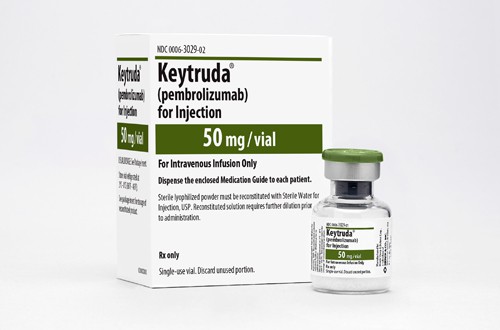
Merck & Co’s blockbuster Keytruda has suffered a rare setback, the immunotherapy failing to show benefits compared to standard chemotherapy in advanced triple negative breast cancer (TNBC).
The disease, which accounts for 10-20% of all breast cancers, is seen as a key area of expansion for the PD-1 and PD-L1 checkpoint inhibitors, and Roche’s Tecentriq gained a significant victory when it was approved in the disease in the US in March.
That approval was a first for checkpoint inhibitors in TNBC, but differed in that it was a combination of Tecentriq and chemotherapy (Celgene’s Abraxane, nab-paclitaxel).
By contrast, Merck & Co’s phase 3 Keynote-119 trial evaluated Keytruda as a monotherapy for the second or third-line treatment compared to chemotherapy (capecitabine, eribulin, gemcitabine or vinorelbine).
The company announced yesterday that the drug had failed to meet its pre-specified primary endpoint of superior overall survival (OS). It said other endpoints were not formally tested per the study protocol because the primary endpoint of OS had not been met.
Testing Keytruda as a monotherapy in this setting always looked like a more difficult feat to achieve, but the drug’s success as a monotherapy in other tumour types, such as non-small cell lung cancer, has emboldened Merck & Co.
If the results had been positive, it could have seized the advantage from Roche in the disease. As it is, Merck will have to make do with pursuing its own combinations.
One such study is Keynote-355, which looks at Keytruda combined with chemotherapy (nab-paclitaxel, paclitaxel, gemcitabine, carboplatin) vs. placebo plus chemotherapy for previously untreated locally recurrent inoperable or metastatic TNBC. This trial, which has much in common with the IMpassion130 pivotal trial with which Tecentriq gained its approval, is due to complete in December 2019.
“Metastatic triple-negative breast cancer is an aggressive and challenging disease to treat, especially after progression on initial standard-of-care treatment,” said Dr. Roy Baynes, senior vice president and head of global clinical development, chief medical officer, Merck Research Laboratories.
“While we are disappointed by the outcome of this monotherapy trial, we are continuing to study Keytruda in earlier stages of the disease and in combination with chemotherapy to address the unmet medical need of patients with triple negative breast cancer. We are grateful to the patients and investigators for their participation in this important study.”
Keytruda is far ahead of all its rivals in terms of revenues, and is set to exceed 8bn in global sales this year. It added another new indication in April when it gained FDA approval in combination with Pfizer’s Inlyta for kidney cancer patients.




